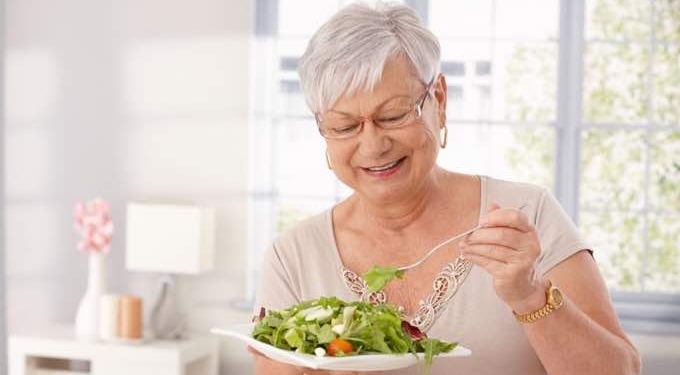
By Stephanie Stephens M.A. | Health Central
There's so much to learn and so many decisions to make — it can all feel a bit “much” when you've just been diagnosed with metastatic breast cancer. That's why HealthCentral spoke to oncology dietitian and nutrition educator Julie Lanford, MPH, RD, LDN of Winston-Salem, N.C., to get her best tips for developing an eating plan when you’re living with this cancer.
Lanford is also the founder of CancerDietitian.com and the wellness director for nonprofit Cancer Services aims to help people with cancer regain a sense of control in their lives.
That's what she hopes you'll do with your nutrition, too, and she offers the following nine pieces of advice.
1. Be real
Nutrition can't guarantee you won't get metastatic breast cancer or make it go away, says Lanford, but it’s still important.
2. A work in progress
You've accepted that you will undergo treatment for the rest of your life, and that some days will be harder than others. If you're “feeling OK,” not having a lot of nausea and fatigue, for example, “you can probably eat pretty much like normal,” Lanford says. If you're not feeling OK, you'll consume a diet that helps manage those symptoms until you can eat other things.
3. Plant it
You've likely heard about the benefits of plant-based diets. Lanford highly recommends them, as does the American Institute for Cancer Research(AICR). These diets not only reduce the risk of certain cancers, but also heart disease and type 2 diabetes. Plus, they help control weight.
This kind of diet doesn't have to be about all plants all the time — just more of them, says Lanford. All the while, you should also be consuming adequate carbohydrates and protein, spacing meals throughout the day, and staying hydrated with plenty of water.
You can go vegetarian or vegan, or you can include some dairy products, meat products such as lean chicken or turkey, and of course, fish. Eating more plants means you get the benefits of helpful chemical compounds called phytonutrients (also called phytochemicals), that fight disease and can't be taken in a pill, Lanford says.
They protect your body's cells from being damaged and thus being more susceptible to cancer. In fact, plant-based foods are known to contain tens of thousands of these phytonutrient warriors that have anti-inflammatory and antioxidant properties, according to an article in Today's Dietitian.
4. Think before you drink
Moderation is a key to healthy eating and drinking. Follow the recommendations of drinking no more than one alcoholic drink per day for women and two for men. Extensive reviews of research show a strong association between alcohol and several types of cancer, according to the National Cancer Institute.
Try to limit your alcohol consumption to twice weekly.
“My rule of thumb is that if you have something three times a week, it's a habit,” Lanford says.








![Charles Eisenstein: The Illusion of Separation [2-min video]](https://consciouslifenews.com/wp-content/uploads/2024/02/the-illusion-of-separation-350x250.jpg)




![Everything You Ever Wanted to Know About 9/11 Conspiracy Theory in Under 5 Minutes [VIDEO] | by James Corbett](https://consciouslifenews.com/wp-content/uploads/2018/09/911-a-conspiracy-theory-120x86.jpg)
